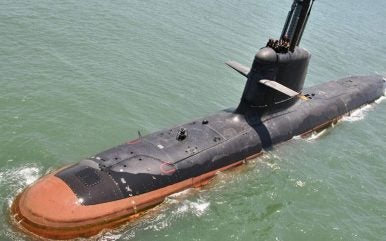
In a move to bolster national security and promote indigenous manufacturing, the Defence Acquisition Council (DAC) has greenlit a slew of capital acquisition proposals amounting to Rs 84,560 crore.
The approvals, announced on February 16, 2024, show India’s commitment to self-reliance in defence and highlight a shift towards sourcing technologies from domestic vendors.
The ‘Aatmanirbharta in Defence’ initiative aims to reduce import dependency and foster domestic defence manufacturing capabilities, issuing approximately 350 new industrial licenses over the last seven years. Encouraged by government initiatives, private players are developing defence equipment manufacturing capacity to meet the armed forces’ requirements and address programme delays, cost overruns, and quality issues.
The Defence Acquisition Council (DAC) has authorised a series of Acceptance of Necessity (AoNs) for a variety of capital acquisition proposals, marking an investment in strengthening the country’s armed forces and coast guard. With a focus on advancing the capabilities of the Armed Forces and the Indian Coast Guard (ICG), the approved proposals encompass a range of equipment and technologies.
In a bid to fortify India’s defence capabilities against evolving threats, the DAC has paved the way for the procurement of new-generation anti-tank mines equipped with seismic sensors and remote deactivation features. Additionally, approvals have been granted for the acquisition of air defence tactical control radar to bolster air defence systems and enhance surveillance capabilities.
Recognising the importance of maritime security, the DAC has sanctioned the procurement of medium-range maritime reconnaissance and multi-mission maritime aircraft aimed at augmenting surveillance and interdiction capabilities across India’s maritime domain. Moreover, measures to enhance the offensive capabilities of naval assets include the procurement of heavy-weight torpedoes for Kalvari Class submarines.
In a move to bolster interoperability and extend operational reach, approvals have been granted for the acquisition of flight refueller aircraft for the Indian Air Force and software-defined radios for the Indian Coast Guard, facilitating communication and networking capabilities.
Recently, India has taken strides in bolstering its Air Force capabilities and promoting self-reliance through two initiatives. Firstly, the government has approved a $4bn deal for the acquisition of 31 MQ-9B remotely piloted aircraft. Additionally, in a move towards bilateral cooperation between Brazil and India, Embraer Defense & Security and Mahindra have joined forces to facilitate the procurement of the C-390 Millennium multi-mission aircraft by the Indian Air Force.
The DAC’s decision to amend the Defence Acquisition Procedure (DAP) 2020 reflects a concerted effort to foster a conducive ecosystem for defence startups and micro, small, and medium enterprises. By streamlining procurement processes and incentivising through schemes like Innovations for Defence Excellence (iDEX) and Technology Development Fund (TDF), India aims to create a supportive environment for domestic players and promote ‘Ease of Doing Business’ in the defence sector.
With these strategic investments and policy reforms, India reaffirms its commitment to self-reliance in defence production and shows its readiness to embrace technologies developed domestically, thereby strengthening the nation’s security apparatus while catalysing economic growth in the defence sector.




